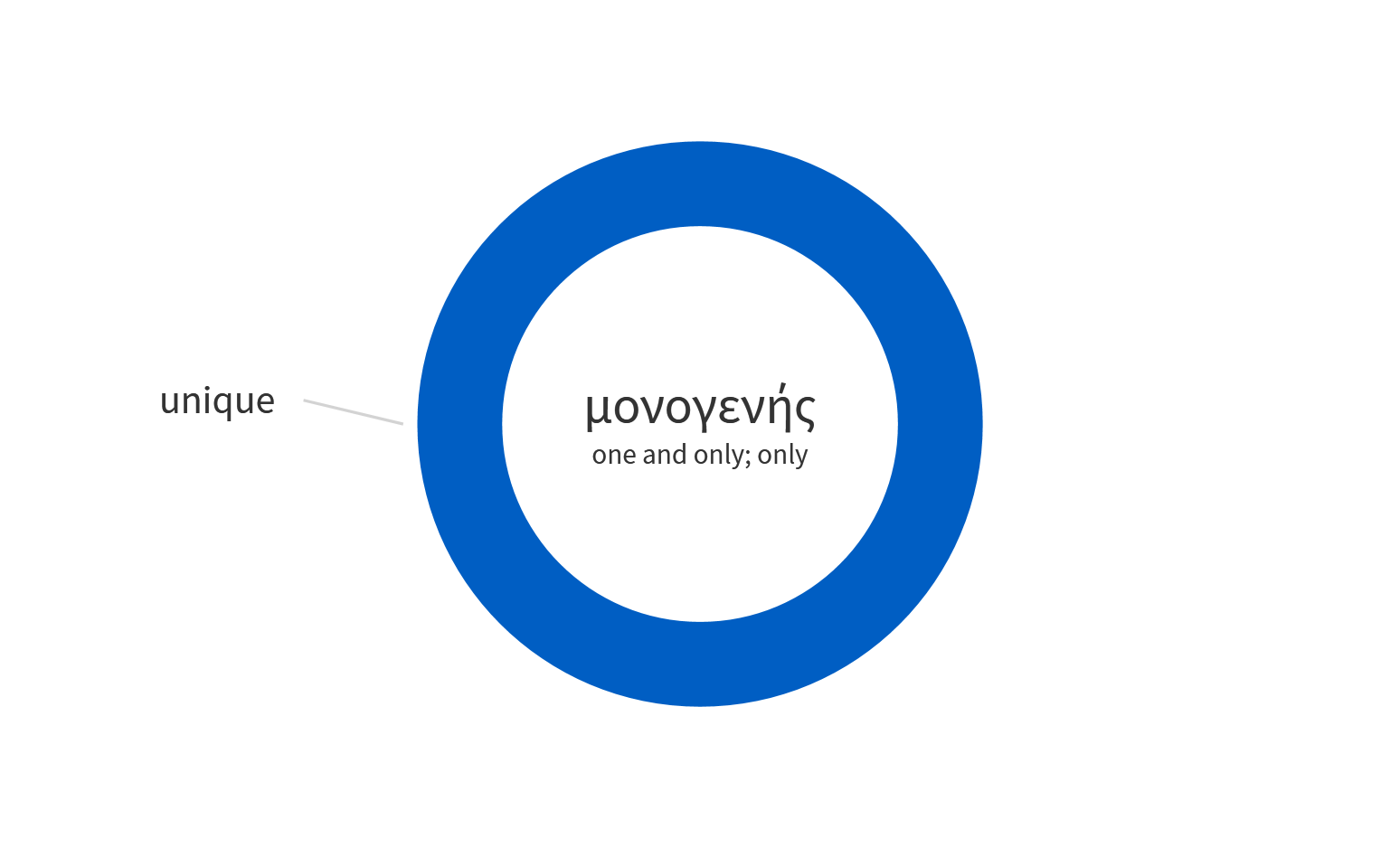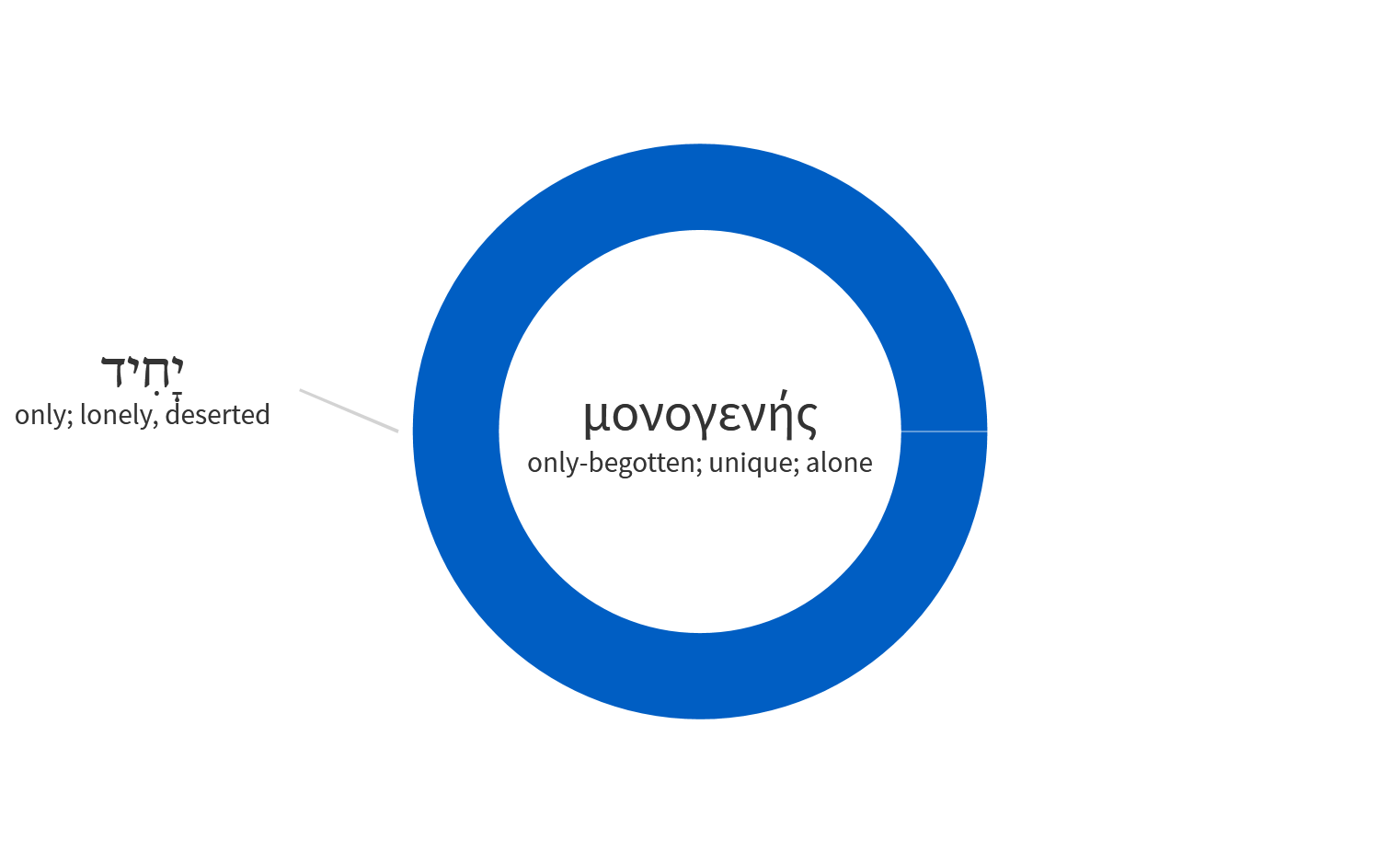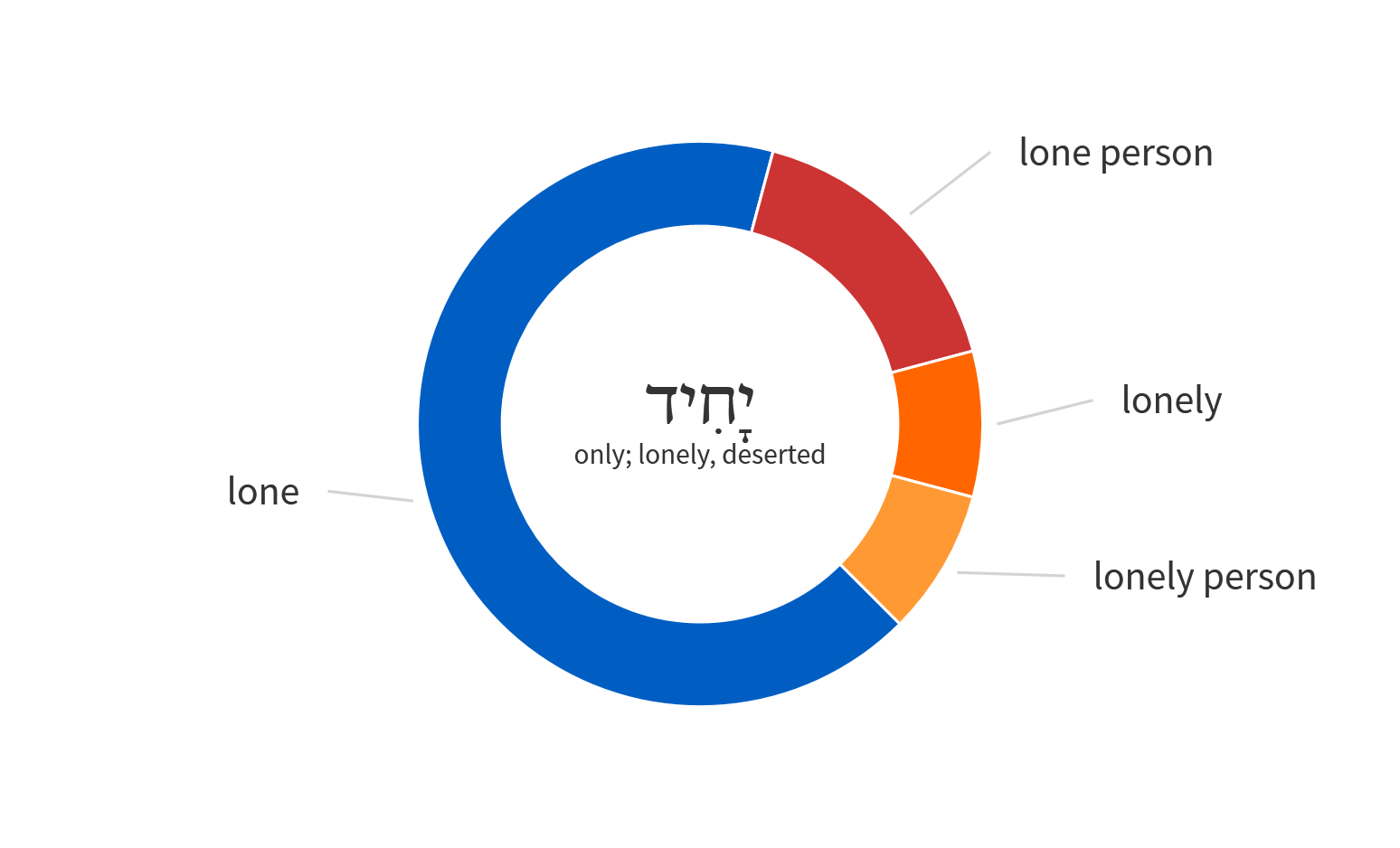John 3:16, “For God so loved the world that he gave his only (μονογενῆ) Son, so that everyone who believes in him may not perish but may have eternal life."
My question resides in the greek term μονογενῆ often translated a "only" or "only begotten" and which seems to be a significant part of Christian theology. This seems to indicate that Jesus is God's ONLY child.
I am not understanding how this translation can square with the John concept that we can also be children of God (τέκνα Θεοῦ) as in John 1:12 and elsewhere in the Johannine letters. This concept also appears in Philippians and Romans, but not anywhere else in the new testament.
Important to the New Testament (God sacrifices his son), this is also related to the child sacrifice narratives of Isaac (Genesis 22) and Jephthah's daughter (Judges 11). It seems to be related to the Hebrew word yachid (יְחִֽידְךָ֤). In Gen 22:2, yachid is used to describe Isaac, and is translated as αγαπητόν (the one you love), and in Judges yachid is directly translated as μονογενής. But in Judges, it follows on saying that she was his μονογενής daughter, AND he had no other daughters or sons. The idea of μονογενής and "no other children" seem to be two separate and distinct properties. The greek does not use the term for "for/because," but the conjunction "and/but."
μονογενῆ seems to be explicitly μονο-γενῆ which means "one" (mono) and "kind" (genus - as in species taxonomy). Furthermore, Isaac was clearly not an only child to Abraham. Abraham was also the father of Ishmael.
This seems to be a crucial point to Christian theology. Was Jesus a "one of a kind" child of God or "only begotten?" If he is only begotten, then how can we also be children of God? Psalm 2 seems to indicate (though not naming) that King David is God's annointed (Mesiah) and also his begotten child (though I assume many will take this as a prophecy of Jesus).
But then there are the explicit references to the children (or sons) of God in Genesis 6:2, and in Job 1:6 and 2:1, בְּנֵ֣י הָאֱלֹהִ֔ים, "Children of God," (Greek: υιοί του θεού) Here it is clearly plural and in Job, this menagerie includes Satan.
In Exodus 4:22, God instructs Moses to tell Pharaoh that Israel is God's firstborn son... I get that there is likely a reference to the "people of Israel" here, but perhaps he is referring to Jacob/Israel and thus to his children? The name "Ramses" means "child of Ra" (ra-mses), so we see here a contrast and conflict to children of the egyptian God and the god of Moses. It's interesting that Moses' name has the same root as ramses (MSS), but the place for the god name (ra-mss) is empty, indicating the invisible God of Moses perhaps.
Question: How can μονογενῆ be translated as "only begotten" or "only" son in the context of the old testament reference and along with the concept that we can also be children of God? Does being a child of God mean that we are each unique and one-of-a-kind? Given that John 3:16 is the most quoted New Testament verse, isn't this of extreme importance?


